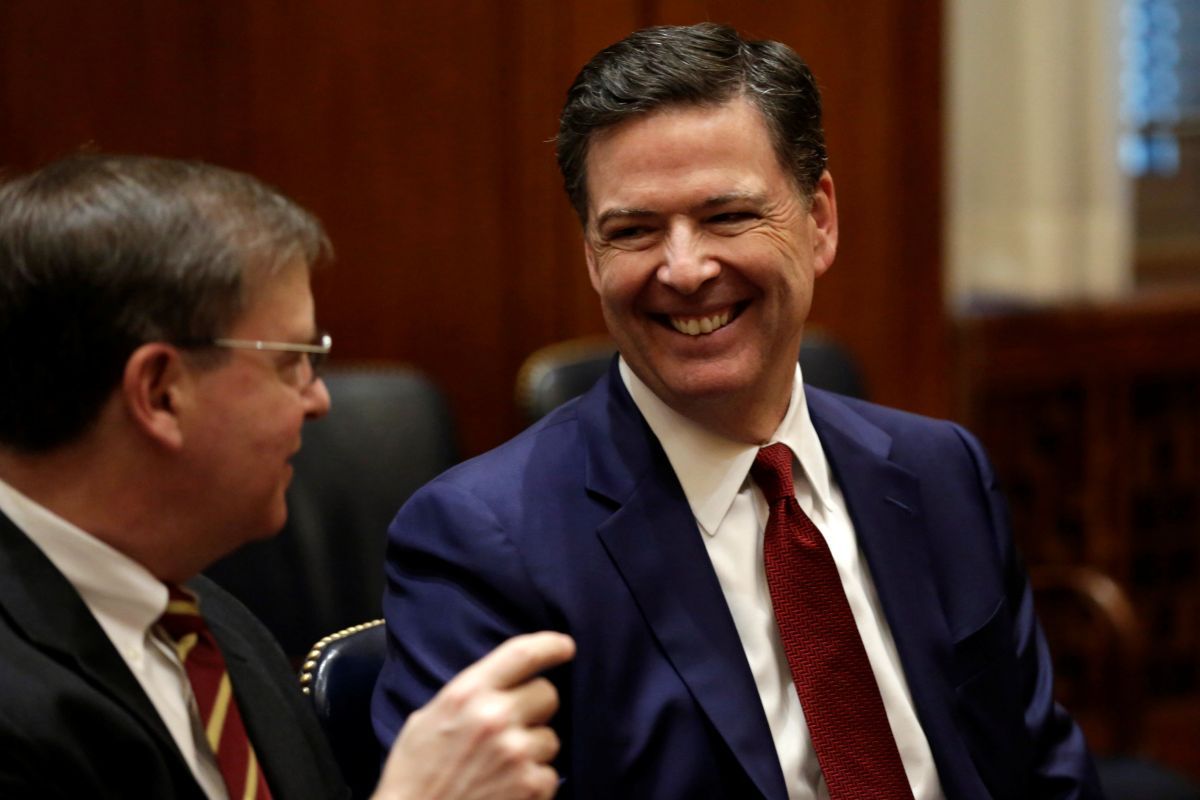
The bombshell announcement that sent shocks and surprise ricocheting through Washington ends the career of the man who was once seen as the unimpeachable and nonpartisan ideal of how a law enforcement officer should behave, CNN reported.
But Comey saw his reputation tarnished when he was dragged into the toxic politics of the 2016 campaign. In recent days, he again came under fire for his handling of the investigation into Hillary Clinton's private email server. Many Democrats believe that his announcement that he was re-opening the probe 11 days before the election cost the former secretary of state the presidency.
Read alsoFBI Director James Comey says Russia is "greatest threat of any nation on Earth"The White House said that Comey was fired based on the clear recommendations of both Deputy Attorney General Rod Rosenstein and Attorney General Jeff Sessions. Sessions has recused himself from the Russia investigation since he was a member of Trump's campaign team.
In a signed letter, Trump informed Comey that he was "hereby terminated and removed from office, effective immediately," explaining that he reached the conclusion that Comey is "not able to effectively lead the bureau."
"It is essential that we find new leadership for the FBI that restores public trust and confidence in its vital law enforcement mission," Trump told Comey in the letter. "I wish you the best of luck in your future endeavors."
In a separate letter, rich in irony, Rosenstein laid out the reasons for Comey's firing, arguing that it was his transgressions over the Clinton email investigation that were the cause of his dismissal.
At the center of Rosenstein's rationale for recommending Comey's firing was the director's handling of the investigation into Clinton's private server, namely his decision to recommend no charges be filed and the news conference he held to explain his reasoning.
Rosenstein accused Comey of attempting to "usurp the attorney general's authority" by publicly announcing why he felt the case should be closed without prosecution.
"Compounding the error, the director ignored another longstanding principle: We do not hold press conferences to release derogatory information about the subject of a declined criminal investigation," Rosenstein argued in his memo.
"We should reject the departure and return to the traditions (of the bureau)," Rosenstein said. "The way the director handled the conclusion of the email investigation was wrong. As a result, the FBI is unlikely to regain public and congressional trust until it has a director who understands the gravity of the mistakes and pledges never to repeat them."

